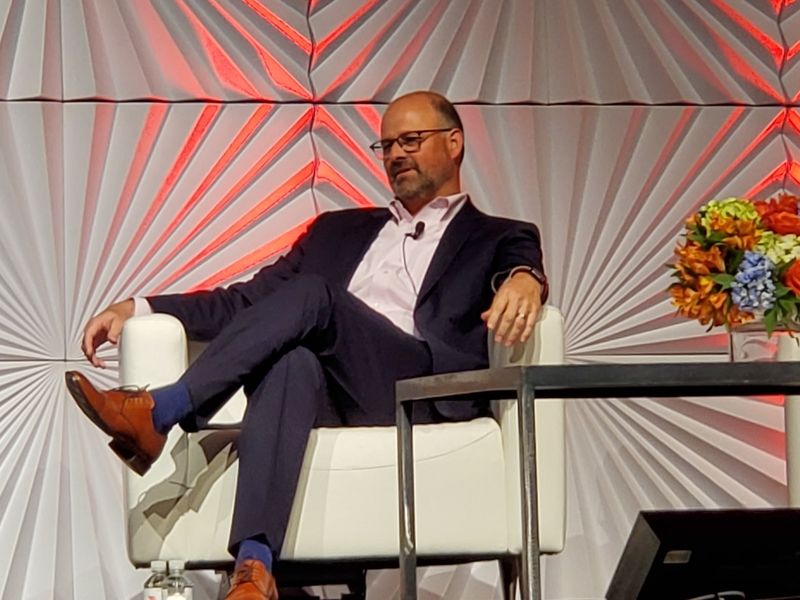
Nissan Motor Acceptance Co. President Kevin Cullum expects 2022 would represent “ ’Groundhog Day’ for … lenders,” with favorable market conditions similar to 2021.
This means “low delinquencies, low losses, greater profits for the dealers,” Cullum told the Auto Finance Summit last week.
Cullum said NMAC has encountered market conditions he has never seen before. The company’s nearly $50 billion portfolio experienced no losses during the first four months of its fiscal year, according to Cullum.
“That doesn’t make any sense,” he said.
Other automaker captive finance companies have reported similar conditions amid the rising prices created by the inventory shortage. For example, Ford Credit posted its first ever negative loss-to-receivables rate during the second quarter, according to CFO Brian Schaaf.
The company’s 30-, 60- and 90-day delinquencies also are at record lows, Cullum said. And rising vehicle prices have increased the value of the assets NMAC financed by 30 percent, he said.
Nissan has also focused on improving the credit quality of its portfolio over the past two years, Cullum said.
Cullum said he felt used vehicles couldn’t increase in price much further, though “we’re actually still seeing values go up.” He said they wouldn’t fall until new-vehicle supply caught up and exceeded demand.
“That’s not gonna happen in ’22 or probably ’23,” he said.
However, Cullum said that in the interim, new-vehicle supply won’t fall to a level that could harm NMAC’s overall portfolio — reducing loan originations to the point the lost volume couldn’t be offset by higher amounts financed.
“We’re planning for growth, but at the worst-case scenario, I don’t [see] us shrinking much more,” Cullum said.
NMAC’s portfolio has been declining, Cullum said. While the company’s retail loan book grew until September, its leasing business has been “struggling,” he said.
Cullum said Nissan has also for the first time in his knowledge eliminated cash rebates on new vehicles. Its only incentive spending entails special lease offers and interest rates, he said. “We’re gonna continue that,” Cullum said of competing on interest rates. “That’s the plan.”
Vehicle supply will return to more manageable levels, but Cullum was adamant it would not rise back to the levels Nissan dealerships experienced in the past.
“We will never go back there,” Cullum said. “Not in the U.S.”
Instead, the goal will be to keep inventory below 60 days’ supply, according to Cullum. Before the COVID-19 pandemic, most automakers had seen supply creep up around the 70-day mark. Nissan dealerships carried more than 100 days’ supply.
“We’re not gonna go anywhere near that,” he said.
As far as demand, Cullum said he didn’t anticipate inflation to cool consumer interest.
And interest rates won’t change significantly in the next six months, he said. Even when rates ultimately rise, “I don’t see transaction prices adjusting down,” he said. “The fallout will be longer terms.”
Given the large difference between income and payment requirements, “the only relief is going to be the term,” Cullum said.

